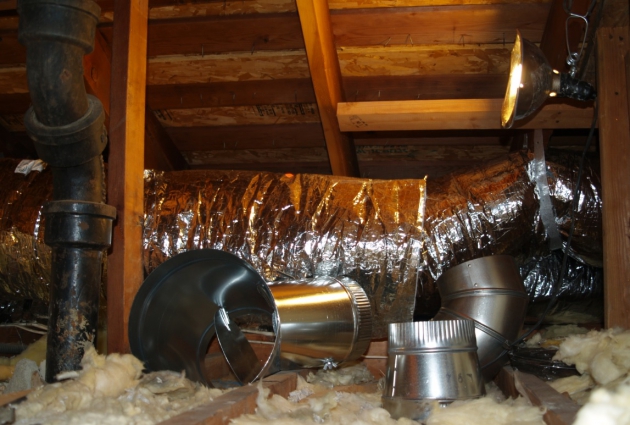Online House Auctions in the USA: Everything You Need to Know
Online House Auctions in the USA: Everything You Need to Know the digital revolution has irrevocably transformed the real estate landscape. Today’s property seekers no longer need to navigate crowded auction rooms or juggle physical paddle raises. Instead, they can tap into online house auctions USA platforms from the comfort of their couch. Rapid, transparent, and brimming with possibilities, these auctions offer a frontier of opportunity for first-time buyers, seasoned investors, and curious bargain hunters alike. This guide unpacks every facet—terminology, platforms, strategies, risks, and more—equipping readers with a roadmap to navigate this burgeoning space.

What Are Online House Auctions USA?
At its essence, an online house auction is a digital marketplace where residential properties are sold to the highest bidder. Sellers range from banks liquidating foreclosed homes to private owners seeking swift transactions, estate executors managing inheritances, and government agencies offloading surplus assets. Unlike traditional auctions, these events unfold entirely online—listings, inspections, bidding, and closings all facilitated via secure web portals.
Core Features
- Virtual Listings: High-resolution photos, 3D tours, and drone footage.
- Real-Time Bidding: Live countdowns, autobid functions, and bidder dashboards.
- “As-Is” Sales: Properties are sold in current condition, without seller warranties.
- Transparent Fee Structures: Buyer’s premiums, closing costs, and registration deposits clearly outlined.
The Rise of Digital Auctions
A confluence of technological innovation and market dynamics has fueled the ascent of online house auctions USA:
- Pandemic-Era Acceleration
Social distancing mandates and lockdowns compelled even the most traditional auction houses to embrace virtual formats. What began as a necessity swiftly became a preference. - Enhanced Accessibility
Geographic barriers dissolve when auctions migrate online. A bidder in Florida can compete for a California seaside bungalow within minutes. - Cost Efficiency
Sellers save on physical venue expenses, printed catalogs, and in-person staffing. Those savings often translate into lower opening bids. - Data-Driven Insights
Integrated analytics reveal bidder behaviors, price trends, and market heatmaps, empowering more informed strategies.
Key Platforms and Players
Several major portals dominate the online house auctions USA sphere. Each offers unique features, fee models, and inventory:
Auction.com
- Specialty: Foreclosures, bank-owned REO properties
- Highlights: Scheduled live auctions, robust filtering by state and county, integrated financing partners
- User Experience: Intuitive dashboard with bid tracking and push notifications
Ten-X (formerly Auction.com’s B2B arm)
- Specialty: Institutional listings, bulk-portfolios, commercial opportunities
- Highlights: Sealed-bid auctions, express close options, detailed asset reports
- User Experience: Advanced research tools with interactive comps
Hubzu
- Specialty: Flex auctions combining traditional and timed formats
- Highlights: “Make Offer” feature, appraisal-backed starting prices
- User Experience: Calendar-driven auction schedule and mobile app bidding
Xome
- Specialty: Hybrid auctions, connecting buyers to MLS and offline channels
- Highlights: Live streaming capabilities, integrated title services
- User Experience: Consolidated end-to-end transaction flow
Government Surplus Portals
- GSA Auctions: Federal properties, ranging from residential units to large-scale tracts
- HUD Home Store: HUD-owned foreclosures often starting at aggressive markdowns
How to Participate in Online House Auctions USA
1. Registration and Pre-Qualification
- Account Setup: Provide identification, proof of funds, and, in some cases, pre-approval letters.
- Deposit Requirement: Typical deposits range from 1% to 5% of the opening bid, held in escrow.
- Terms Agreement: Acceptance of the auction’s Conditions of Sale, including timelines and fee structures.
2. Due Diligence: The Non-Negotiable Task
- Title Search: Engage a reputable title company to identify liens, easements, and judgments.
- Property Inspection: Schedule virtual or in-person walkthroughs; rely on 3D tours where physical access is restricted.
- Comparable Analysis: Gather recent sales data within a one-mile radius; adjust for square footage, age, and lot size.
Uncommon terminology: Treat your due diligence like an archaeological excavation—meticulous, layer-by-layer scrutiny often unearths hidden liabilities.
3. Crafting a Bidding Strategy
- Set Your Ceiling: Determine a maximum bid (“hard cap”) based on total cost basis (purchase price + fees + renovation reserve).
- Early vs. Sniper Approach:
- Early Positioning: Submit a bold opening bid to deter casual bidders.
- Last-Minute Surge: Lie in wait, then deploy a decisive increment in the final seconds.
- Early Positioning: Submit a bold opening bid to deter casual bidders.
- Autobid Tools: Many platforms allow automated bidding up to your ceiling, minimizing emotional overshoots.
4. Understanding Fees and Closing Protocols
- Buyer’s Premium: A percentage (often 3–6%) added to the winning bid.
- Closing Costs: Title insurance, recording fees, transfer taxes, and any outstanding HOA dues.
- Settlement Timeline: Digital closings can compress escrow periods to as little as 14–21 days.
Advantages of Online House Auctions USA
Broad Geographic Reach
Digital auctions obliterate location constraints. Podrastic relocation need not hamper bidding on a sought-after beach cottage.
Speed and Certainty
Once the hammer falls, there’s no renegotiation. Bidders know the outcome instantly, and settlement schedules are firmly codified.
Transparent Market Signals
Real-time bid tracking reveals true demand curves. This transparency mitigates the miasma of “hidden offers” that plague private negotiations.
Diverse Inventory
From modest starter homes to sprawling estates and raw land parcels—online house auctions USA curate a heterogeneous mélange of listings.
Potential Pitfalls and Mitigation
“As-Is” Condition Risks
Properties sold without warranties may harbor structural defects, environmental contamination, or code violations.
Mitigation: Allocate a 15–20% contingency fund for unforeseen repairs. Secure a limited inspection or indemnity agreement when possible.
Shill Bidding and Artificial Inflation
While less common online, shill tactics can still surface through collusive bidding rings.
Mitigation: Monitor bidding patterns—unnaturally small, rapid increments often signal shills. Pause and re-enter with a substantial raise to dissuade them.
Financing Constraints
Traditional lenders may balk at “as-is” auctions, delaying closings.
Mitigation: Line up bridge loans or hard-money financing in advance. Confirm lender appetite for auction purchases.
Technical Glitches
Internet outages or platform hiccups can sabotage last-second bids.
Mitigation: Maintain backup connections (mobile hotspot), pretest your bidding interface, and consider a proxy bidder if available.
Legal and Regulatory Considerations
State-Specific Auction Laws
Each state delineates unique statutes governing foreclosure timelines, notice requirements, and redemption periods. Familiarize with local regulations to avoid procedural pitfalls.
Consumer Protection Provisions
Some jurisdictions mandate clear disclosures of liens, environmental hazards, or structural defects. Verify that the platform complies with these obligations.
Electronic Signatures and Remote Notarization
The rise of e-closings hinges on robust legal frameworks for digital signatures. Confirm that your state permits remote notarization of deeds and closing documents.
Technology Shaping the Future
Virtual and Augmented Reality Tours
Immersive VR walkthroughs and AR overlays let bidders visualize structural alterations, furniture layouts, and renovation potential without setting foot inside.
Blockchain-Enabled Title Records
Pilot programs in select counties are dematerializing deed registries onto immutable ledgers—accelerating title searches and bolstering chain-of-title integrity.
AI-Powered Bid Forecasting
Machine learning models analyze historical auction data to predict optimal bid ceilings and likely sale prices. Leveraging these insights transforms intuition into empiricism.
Mobile Bidding Apps
Real-time push notifications, finger-swipe bidding, and integrated calendars ensure that no opportunity slips through the cracks—even when on the move.
Case Studies
Coastal Condo Coup
A three-bedroom beachfront condo listed on a national platform launched at $450,000. The winning bidder, armed with local zoning knowledge and a tight renovation timeline, secured it at $510,000. Post-renovation short-term rentals now yield nightly rates double the original projections.
Suburban Starter Home Snag
A two-bedroom bungalow went to auction with a $120,000 opening bid. Extensive virtual due diligence revealed no major red flags. Applying a sniper tactic, the buyer raised from $135,000 to $142,500 in the final ten seconds—clinching the deal. A cosmetic revamp turned it into a $190,000 sale within three months.
Estate Liquidation Victory
An 1890s Victorian mansion featured on a specialty auction site. The estate executor prioritized expediency over price. With shrewd title analysis and a prepared renovation crew, the bidder acquired the lot at a 20% discount to historic comp values. A meticulous restoration unlocked preservation tax credits, further boosting ROI.
Expert Tips for Auction Success
- Cultivate Multiple Platform Accounts
Don’t rely on a single auction site. Different platforms attract different seller types and inventory. - Network with Local Agents and Attorneys
These insiders often glimpse trustee lists before public release and can flag online house auctions USA opportunities early. - Stay Abreast of Market Trends
Quarterly recalibrate your comp analyses to reflect shifting interest rates, material costs, and neighborhood gentrification indices. - Practice with Mock Auctions
Many platforms offer demo auctions—use these to refine timing, bid increments, and interface fluency. - Maintain Emotional Discipline
The countdown’s crescendo can trigger adrenaline surges. Predefine your ceiling and employ autobid tools to enforce it.
The digital migration of property auctions has unlocked unprecedented avenues for buyers and investors. Online house auctions USA meld convenience, transparency, and diverse inventory, but they also demand rigorous due diligence, strategic discipline, and technological savvy. By mastering platform mechanics, legal nuances, and bidding psychology, participants can transform the auction landscape from a daunting arena into a fertile ground for opportunity. Prepare thoroughly, bid confidently, and let the gavel’s echo mark the start of your next real estate triumph.





